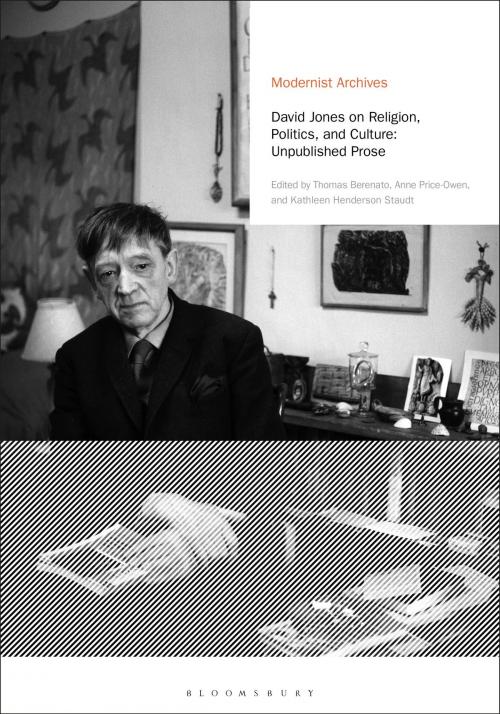David Jones on Religion, Politics, and Culture
Unpublished Prose
Fiction & Literature, Literary Theory & Criticism, Reference, British, Nonfiction, Entertainment, Drama, Anthologies| Author: | David Jones | ISBN: | 9781474274142 |
| Publisher: | Bloomsbury Publishing | Publication: | June 28, 2018 |
| Imprint: | Bloomsbury Academic | Language: | English |
| Author: | David Jones |
| ISBN: | 9781474274142 |
| Publisher: | Bloomsbury Publishing |
| Publication: | June 28, 2018 |
| Imprint: | Bloomsbury Academic |
| Language: | English |
David Jones – author of In Parenthesis, the great poem of World War I – is increasingly recognized as a major voice in the first generation of British modernist writers. Acclaimed by the likes of T.S. Eliot, W.B. Yeats, and W.H. Auden, his writing was deeply informed by his Catholic faith and Welsh blood.
This book makes available for the first time a number of previously unpublished statements by Jones that open new perspectives on his own work and the religious, political, and cultural engagements of British modernism more broadly. Annotated throughout, with detailed commentaries exploring the historical context of each document, the volume presents the restored text of Jones's essay on Hitler and includes a letter to Neville Chamberlain, an unfinished essay on Gerard Manley Hopkins, and the transcript of an interview with Jones a year before his death. These reveal an unknown side of Jones and give fresh insight into the influences and assumptions of 20th-century British literary culture.
David Jones – author of In Parenthesis, the great poem of World War I – is increasingly recognized as a major voice in the first generation of British modernist writers. Acclaimed by the likes of T.S. Eliot, W.B. Yeats, and W.H. Auden, his writing was deeply informed by his Catholic faith and Welsh blood.
This book makes available for the first time a number of previously unpublished statements by Jones that open new perspectives on his own work and the religious, political, and cultural engagements of British modernism more broadly. Annotated throughout, with detailed commentaries exploring the historical context of each document, the volume presents the restored text of Jones's essay on Hitler and includes a letter to Neville Chamberlain, an unfinished essay on Gerard Manley Hopkins, and the transcript of an interview with Jones a year before his death. These reveal an unknown side of Jones and give fresh insight into the influences and assumptions of 20th-century British literary culture.















